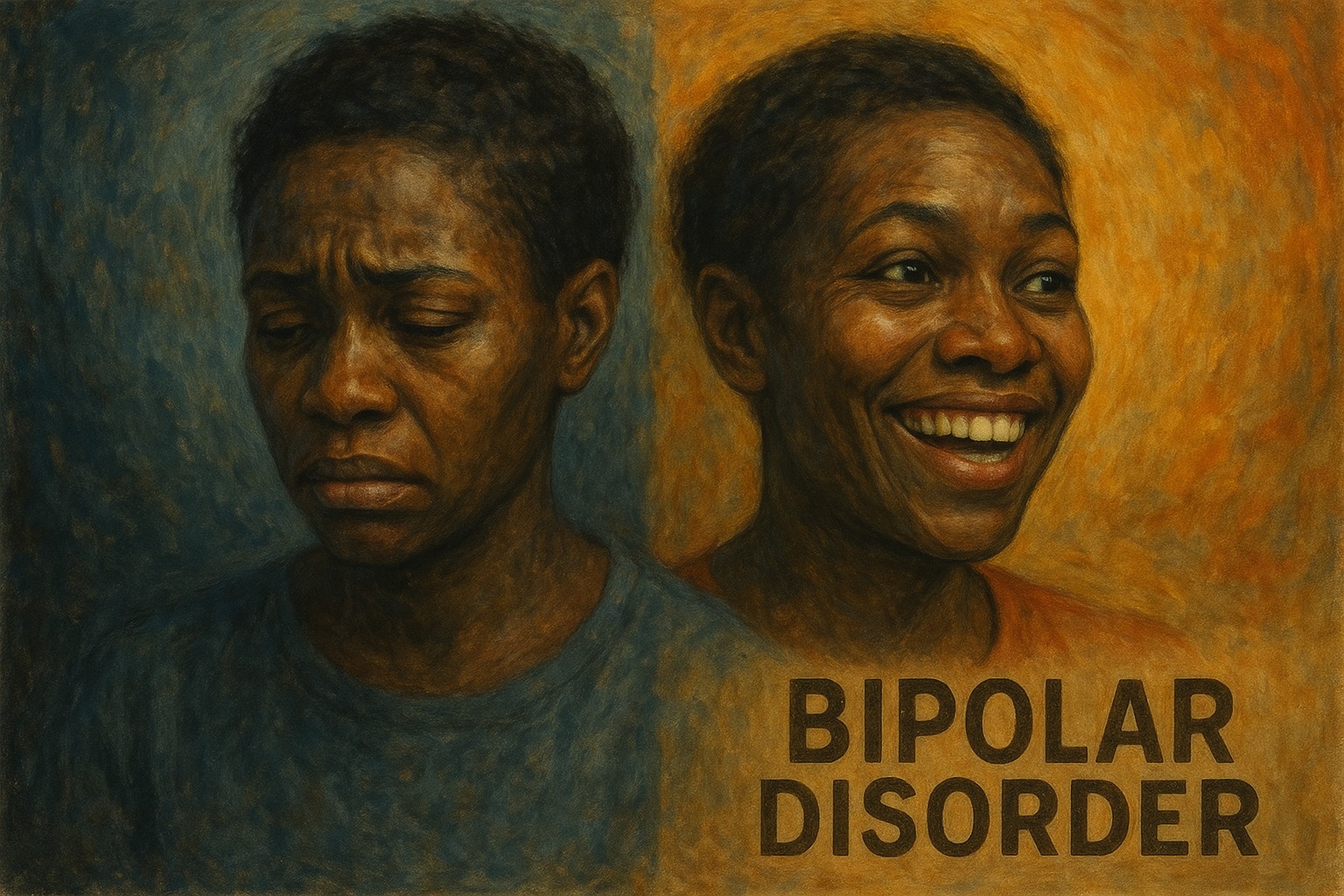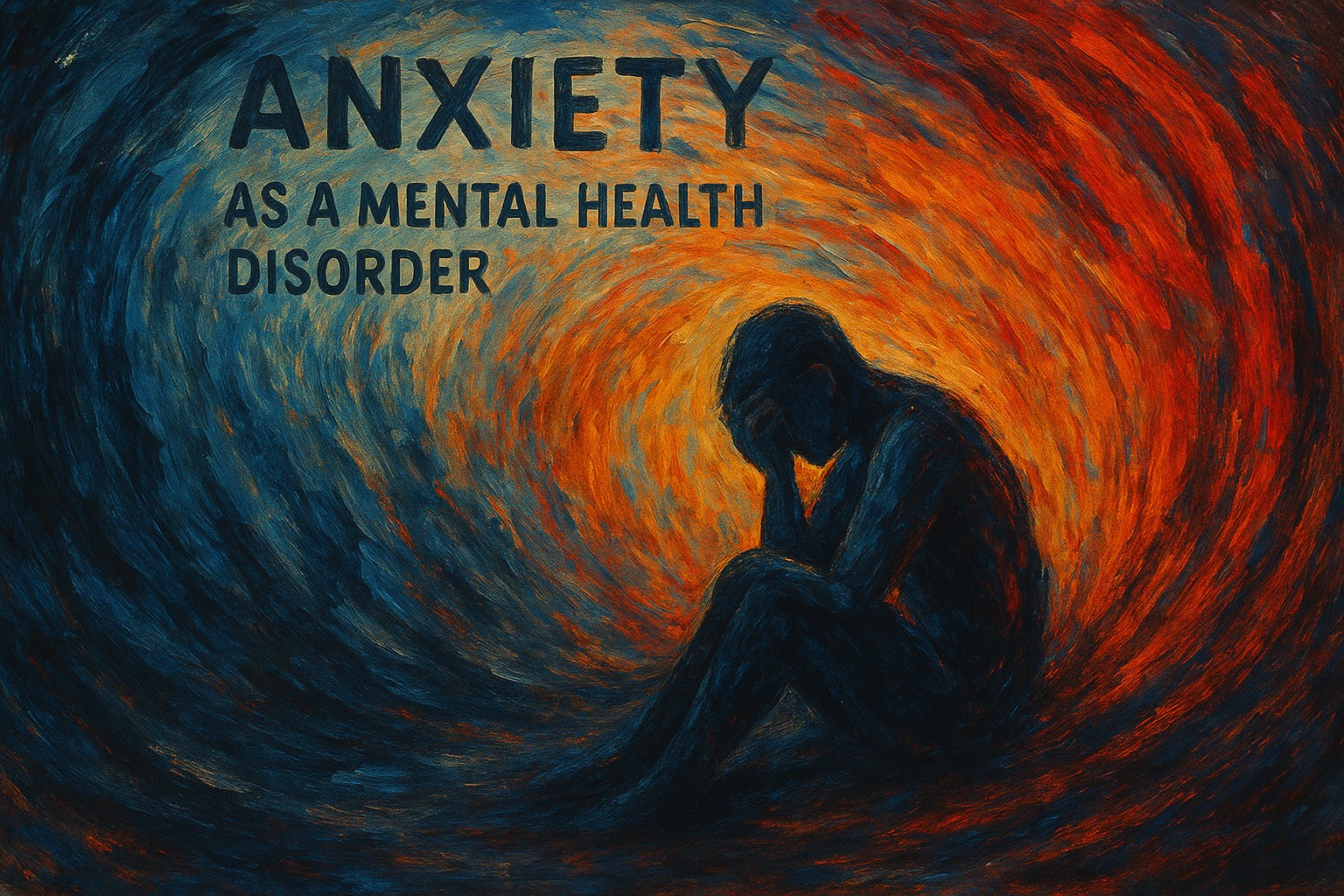Mental health conversations are finally getting the attention they deserve, but some conditions remain misunderstood. One such condition is bipolar disorder, a serious mental health disorder marked by extreme mood swings that include emotional highs (mania or hypomania) and lows (depression). These fluctuations go far beyond the typical ups and downs we all experience.
In this post, we'll explore what bipolar disorder is, its types, symptoms, causes and how it can be managed.
What Is Bipolar Disorder?
Bipolar disorder is a mood disorder that affects how a person feels, thinks, and behaves. People with bipolar disorder experience intense emotional states that typically occur in distinct periods called mood episodes. These episodes are categorized as either manic/hypomanic or depressive.
- Manic Episode: An abnormally elevated, expansive, or irritable mood, often with increased energy, racing thoughts, and risky behavior.
- Depressive Episode: A period of deep sadness or hopelessness, lack of energy, difficulty concentrating, and loss of interest in activities.
These episodes can last for days, weeks, or even months and significantly disrupt one's daily life.
Types of Bipolar Disorder.
Bipolar disorder is not a one-size fits-all diagnosis. There are several types:
1.Bipolar I Disorder.
Characterized by at least one manic episode, which may be preceded or followed by depressive episodes. Mania can be severe and may require hospitalization.
2. Bipolar II Disorder.
It involves at least one hypomanic episode (a less severe form of mania) and one major depressive episode. Bipolar II does not include full-blown manic episodes.
3. Cyclothymic Disorder (Cyclothymia).
Chronic, fluctuating mood disturbances involving numerous periods of hypomanic symptoms and depressive symptoms lasting for at least two years (one year in children and adolescents), but not severe enough to meet criteria for bipolar I or II.
4. Other Specified and Unspecified Bipolar Disorders.
These involve bipolar symptoms that do not fit into the above categories but still significantly impair functioning.
What Causes Bipolar Disorder?
There is no single cause of Bipolar Disorder. It is believed to be the result of a combination of factors:
- Genetics: Bipolar disorder often runs in families, suggesting a hereditary component.
- Brain Structure and Function: Differences in brain chemistry and structure may play a role.
- Environmental Triggers: Stress, trauma, substance abuse, and major life changes can trigger episodes.
It’s important to note that while genetics and biology may create a vulnerability, environmental stressors often act as triggers.
Signs and Symptoms.
Mania or Hypomania:
- Increased energy, activity, or restlessness.
- Euphoric or unusually irritable mood.
- Decreased need for sleep.
- Grandiose ideas or inflated self-esteem.
- Talkativeness or racing thoughts.
- Impulsive or high-risk behaviors (e.g., spending sprees, unsafe sex).
Depression:
- Persistent sadness or emptiness.
- Fatigue or lack of energy.
- Feelings of worthlessness or guilt.
- Difficulty concentrating.
- Loss of interest in hobbies or activities.
- Changes in sleep or appetite.
- Thoughts of death or suicide.
Diagnosis and Treatment.
Diagnosis typically involves a combination of clinical interviews, mood charts, and input from close family or friends. A psychiatrist or mental health professional is best equipped to make an accurate diagnosis.
Treatment usually includes:
- Medication: Mood stabilizers, antipsychotics, and antidepressants.
- Psychotherapy: Cognitive-behavioral therapy (CBT), interpersonal therapy, and family-focused therapy.
- Lifestyle Management: Regular routines, sleep hygiene, stress management, and avoiding alcohol or drugs.
Treatment is often lifelong and tailored to each individual. With proper care, many people with bipolar disorder lead full and productive lives.
Living With Bipolar Disorder.
Bipolar disorder is a chronic condition, but it's not a life sentence. Support, understanding, and appropriate treatment make a huge difference. People living with bipolar disorder can manage their condition and achieve stability.
If you or someone you love is struggling, it's okay to ask for help. Talking to a mental health professional is a powerful first step.
Final Thoughts.
Bipolar disorder is complex, challenging, and often misunderstood. But with greater awareness, stigma can be reduced, and lives can be improved. Mental health matters, and understanding disorders like bipolar disorder is key to supporting ourselves and those around us.
If you or someone you know is in crisis, don’t wait. Reach out to a mental health professional or contact emergency services. Help is available.



